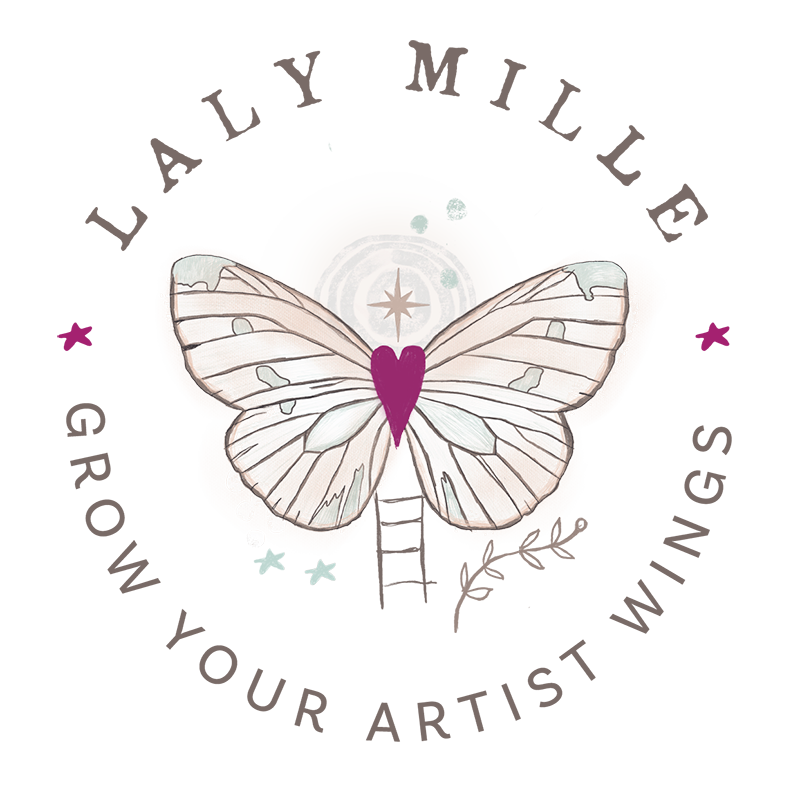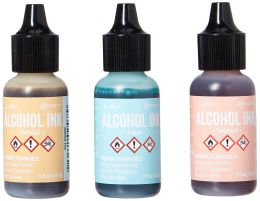Soulful Abstracts
supplies and tools
Soulful Abstracts
Mixed media art class
Here is a general list of suggested supplies and tools for the class. The images below will take you to the Amazon shop for your region when available (affiliate links).
IMPORTANT: You don’t need to buy everything on the list! I’m including a large variety of options so hopefully you can find plenty of things you already own. For instance: you may not have a black Stabilo All pencil but maybe you have some charcoal sticks that would work just as well!
Watch the videos first
The class includes a 5-part video series where I demonstrate the basic supplies for mixed media art + a few fun favorites. The videos are already available as a free workshop HERE.
Don’t go crazy with shopping until you’ve watched them, as they will help you find out which supplies you really want to try and will inspire you to find alternative materials you may already own.
Don’t hesitate to go on a scavenger hunt and collect any tools and materials that you could (safely!) experiment with, or that you could use as substitutes for the ones I use in the lessons. It's the beauty of mixed media and it is exactly how it all started for me, and how I came up with some of my favorite personal techniques.
set up your space
The basics:
A palette and/or other small containers
Water & spray bottle
Rags
Something to protect your surface (table-cloth, packing paper...) and your clothes (apron, old shirt...)
Scissors
Assorted paintbrushes, including a medium-sized flat brush and round brush
A plastic palette knife
White Gesso
Matte gel medium (regular or soft)
Heavy Watercolor paper (300gsm)
An Art Journal/Sketchbook for all your creative experiments!
Optional:
A heat gun/heat tool to speed up drying
An old plastic card
Masking tape
painting
Substrates
You will find recommended substrates listed within each lesson. Remember to be creative: use what you’ve got or what feels best, in any size that you like!
Stretched canvases
Wood panels (MDF panels from the DIY store are a great, inexpensive option)
Heavy Watercolor Paper (300 gsm or more)
Acrylic paints
Titanium White and a few neutrals of your choice like Raw Umber, Titan Buff, Neutral Grey, Naples Yellow Light, Parchment, Payne’s Grey…
Your choice of colors: choose the ones you are most attracted to!
Optional
Acrylic inks
Alcohol inks
Black India Ink
Walnut Ink and/or Instant Coffee
Archival Ink Pad (Black or Brown)
Plaster gauze
For the Faux-Encaustic technique: Super Heavy Matte Gel Medium by Liquitex (but Regular Matte Gel works too). NB: I do NOT recommend using the Heavy Gel by Golden as some students have reported that it made inks bleed, even acrylic ones.
Acrylic neutrals
Acrylic colors
NB: We’re going to work on your personal palette in the class!
Other Inks
Collage
Papers
You don't need to buy anything here: go on a scavenger hunt and ask around to friends, family and your local library.
A variety of papers: tissue paper, packing paper, book pages (preferably from a book that inspires you), sheet music, dried, empty tea bags, sewing pattern tissue, old magazines...
Some fibers: cheesecloth, ribbon, lace, yarn etc.
NB: Make sure to print any images with water-resistant ink. Laser copies/photocopies are best, or if you have an archival ink printer that’s great too. Avoid regular, home/office inkjet printers.
DRAWING AND MARK-MAKING
All of these are optional. You can use any alternative that you like.
Pens and pencils
Regular graphite pencil, mechanical pencil
Black water-soluble pencil (Stabilo All, Inktense…) or water-soluble crayon (Neocolor II)
Charcoal Sticks
Water-soluble Graphite Bars or Soft Pastels
Black and White Posca Pens
Brush-tip Pitt Artist Pens in colors you love
NeoColor I Water-resistant Pastels
Neocolor II Water-soluble Pastels
Stamping etc.
Look for anything that could create interesting marks (we’re going to explore this in the class):
Plastic card & Palette Knife
Pottery Tool Set: these usually include a needle tool, metallic scraper + a little round sponge that works like magic for image transfers!
Stamps & Stencils: bubble wrap, corrugated cardboard and other found materials, as well as store-bought ones like text stamps.
Natural materials (twigs, feathers…)
Charcoal Sticks












































